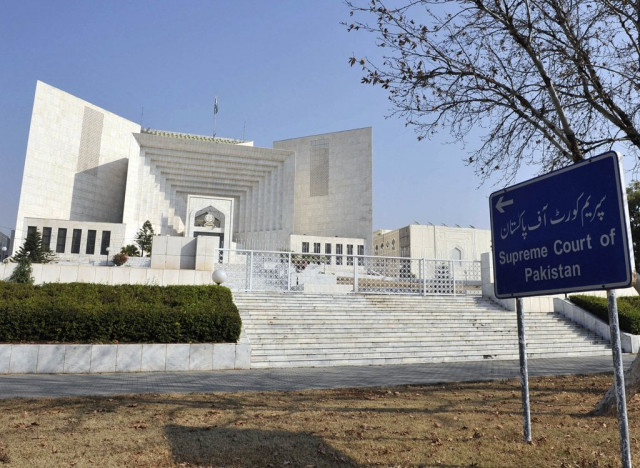High courts must examine death penalty cases: SC
Top court notes HCs don't scrutinise material while deciding appeals by convicts or references sent by trial courts

The country's top court has observed that the duty of a high court, in dealing with a reference for the confirmation of the death sentence, also includes examining the case for itself and even direct further inquiry or take additional evidence into consideration.
A three-member bench of the Supreme Court led by Justice Manzoor Ahmad Malik while hearing a petition posed questions as to what was the nature, scope and extent of reappraisal of evidence by a high court as it dealt with an appeal and a reference sent by a trial court for the confirmation of the capital punishment it had handed down.
“Normally, high courts hear and decide the appeal filed by the convicted person and the reference sent by the trial court for confirmation of the death sentence, together,” the 31-page verdict authored by Justice Mansoor Ali Shah read.
“It has been noticed that while doing so the learned judges of the high courts sometimes, as it appears to have done in the present case, remain content with examining and deciding only the arguments and contentions advanced in the appeal,” it added.
Read more: SC offers relief to mentally ill convicts
“[High courts] do not by themselves scrutinise the whole material available on record of the case.”
The court further noted that it was also incumbent upon the high courts to read and appraise each and every piece of evidence.
“[They also have] to examine whether or not any evidence has been improperly admitted or excluded, or misread or non-read by the trial court.”
Even the non-filing of appeal or withdrawal of appeal by the convicted person, or any concessional statement by the state counsel does not relieve the high court from performing its duty of reappraising the whole evidence available on record, the judge noted in his judgment.
“[High court judges must] discharge their statutory duty under sections 375 and 376 of the Code of Criminal Procedure [CrPC], 1898.”
The court noted that ordinarily, in a criminal appeal against a conviction, the appellate court, under section 423 of the CrPC, could dismiss the appeal if the court was of the opinion that there were no sufficient grounds for interference, after examining all the arguments placed before it for challenging the correctness of the decision made by the trial court.
“It is not necessary for the appellate court to examine the entire record for the purpose of arriving at an independent decision of its own whether the conviction of the appellant is fully justified,” it further noted.
“The position is, however, different where the appeal is by an accused who is sentenced to death, so that the high court dealing with the appeal has before it, simultaneously with a reference fir confirmation of the capital sentence under section 374 of the CrPC.”
The court noted that section 374 of the CrPC provided hat when the session court passed down a death sentence, the proceedings shall be submitted to the high court.
“The sentence shall not be executed unless it is confirmed by the high court,” the verdict read.
“As the death sentence passed by the trial court, i.e., the sessions court, cannot be executed without being it confirmed by the high court, proceedings before the high court on the reference under section 374, the CrPC is yet another tier of judicial assessment of the evidence to examine ‘any point bearing upon the guilt or innocence of the convicted person'.”
Justice Shah said observed high courts had been given very wide powers to prevent any possible miscarriage of justice.
“The proceedings are a reappraisal and reassessment of the entire facts of the case and of the law applicable,” he added in his ruling.
The court said extensive powers actually cast an onerous duty on the high court to ensure safe administration of criminal justice by considering in the reference proceedings all aspects of the case and coming to an independent conclusion, apart from the view expressed by the sessions court.
“The high court has to decide on reappraisal of the whole evidence whether the conviction is justified and, having regard to the circumstances of the case, whether the sentence of death is was appropriate.”
The top court said the right to life and liberty, right to fair trial and right to dignity were fundamental rights guaranteed under Articles 9, 10A and 14 of the Constitution.
“The importance of human life goes to the heart of these fundamental rights, the rigorous two-tiered process of appraisal, assessment and examination under section 374 CrPC also meets the test of these fundamental rights.”



















COMMENTS
Comments are moderated and generally will be posted if they are on-topic and not abusive.
For more information, please see our Comments FAQ